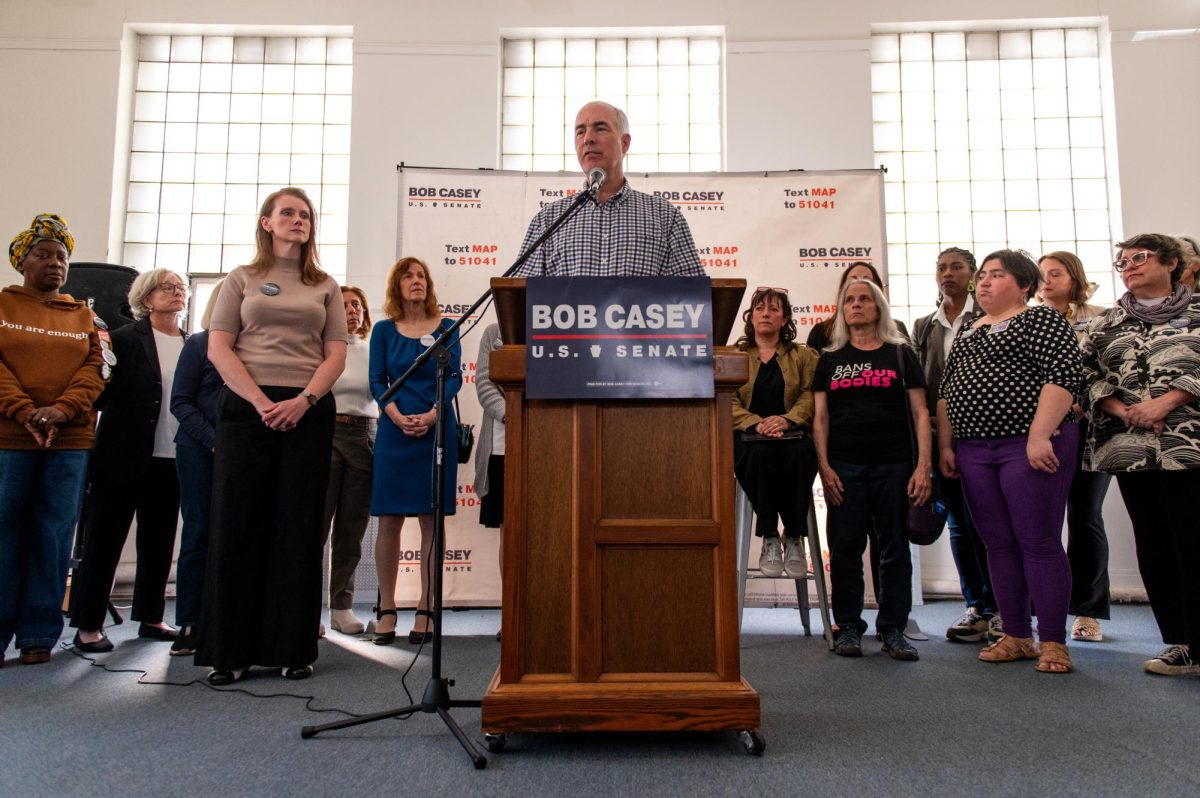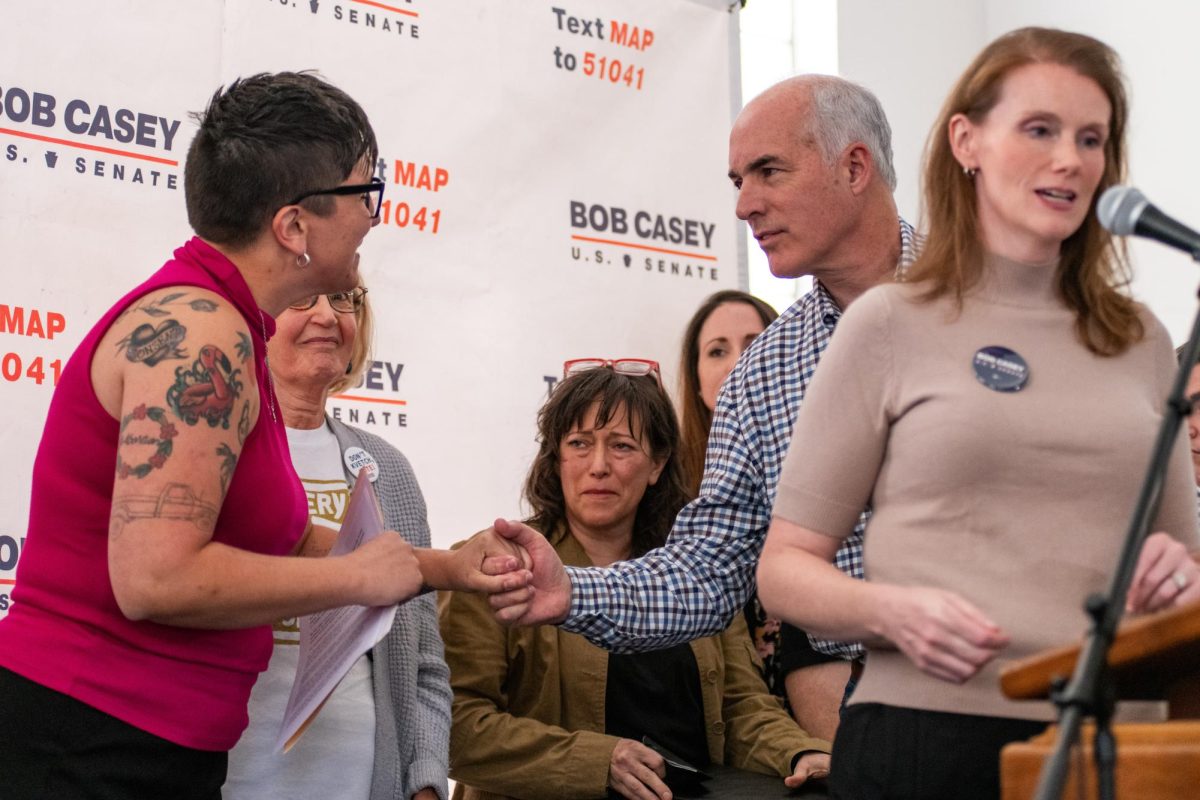Sen. Bob Casey spoke about reproductive health care this election season, saying “the time is now” to fight to restore Roe v. Wade.
“There will not be another time six months from now to get this right, there will not be another time a year from now to get this right,” Casey said. “This is the moment. This election is the moment for us to take a substantial step forward and make sure that Roe can be restored.”
Casey visited the Community Forge Center in Wilkinsburg on Nov. 1. A small group of local women gathered in one room to support each other as two women told their personal stories of abortion and reproductive health care.
The event opened up with Kelsey Lee, a Pennsylvania resident and mother, sharing her story of an abortion. She was told by doctors that if her baby was carried to term, his bones would not be strong enough to sustain his life.
“At 22 weeks into my pregnancy, I chose to have an abortion. [I] could not and would not carry my son for four more months, knowing his life would likely be filled with pain and suffering,” Lee said. “It’s a decision I’m proud of and a choice that was wholly mine based on the information I had at the time, where I was in my life and what I wanted to do.”
As a previous abortion patient, Lee said her position helps her and others to be “stronger and louder” when demonstrating the true stories of real women.
“In years since the first public telling of my story, I found community and solace in fighting alongside others for abortion access. I’ve gone on to lobby Pennsylvania house members in the moments before a vote, to film ad campaigns, to testify for Congress and to attend the State of the Union all in my capacity as an abortion patient,” Lee said. “But my most meaningful contribution to this work has been at Pittsburgh’s only independent abortion clinic.”
Sophia, another Pennsylvania resident and mother, highlighted how people have died from the lack of access to reproductive health care and pointed out difficulties that some women now face. In some states with the exceptions of rape and incest, women face the process of having to confirm their story as factual.
“If they have to go for a forensics interview… they will most likely be asked about penetration and the details around it, and they have to tell their story in detail to a police officer,” Sophia said.
“They have to report their perpetrator. They have to worry about abortion bans instead of getting the immediate help they need, instead of possibly staying housed and safe. They have to prove it happened.”
Casey explained the Dobbs decision, the ruling that overturned Roe v. Wade, concluded that the Constitution does not protect the right to an abortion and therefore should be left to state-by-state decisions.
“What this Dobb decision has brought for the country, it isn’t some constitutional debate about the finer points of the law — it’s about human beings, about women who are living in a different world than we were living in just a few years ago,” Casey said.
Casey also spoke on the political effects of reproductive rights and underscored differences between himself and Republican Senate candidate Dave McCormick.
“My opponent is in favor of blocking even the consideration of the Women’s Health Protection Act, and he is unalterable to the bill itself. I voted to advance the bill to restore Roe v. Wade.” Casey said.
In an interview with The Pitt News, Bob Casey acknowledged the rights that are on the line this election for numerous individuals and groups.
“There’s a lot at stake in this election, and it’s not just kind of a grand statement,” Casey said. “We’ve never had women’s rights more on the line in an election as we do now. Workers’ rights, even voting rights are on the line.”
Casey called women’s health “a family issue” and noted how important it is for young men to understand the impacts of lacking reproductive health care access.
“Young men and men of all ages have a responsibility to the women in their life,” Casey said. “They also have their own responsibility to fulfill, and they have an obligation to do everything they can to support a woman in their life, whether it’s their wife or spouse or girlfriend.”
States’ differing exceptions and legality to abortion access complicate the many reasons a person could receive an abortion and provide varying consequences to gain medical access.
“My story is only one example of why someone would consider and eventually have an abortion. I am not an exception. I stand with nearly 1 million people every year in America who have an abortion.” Lee said. “Abortion is not just a talking point. It is not just an issue that gets voters fired up. Abortion is health care. Abortion is a part of how we shape our families and our lives.”



